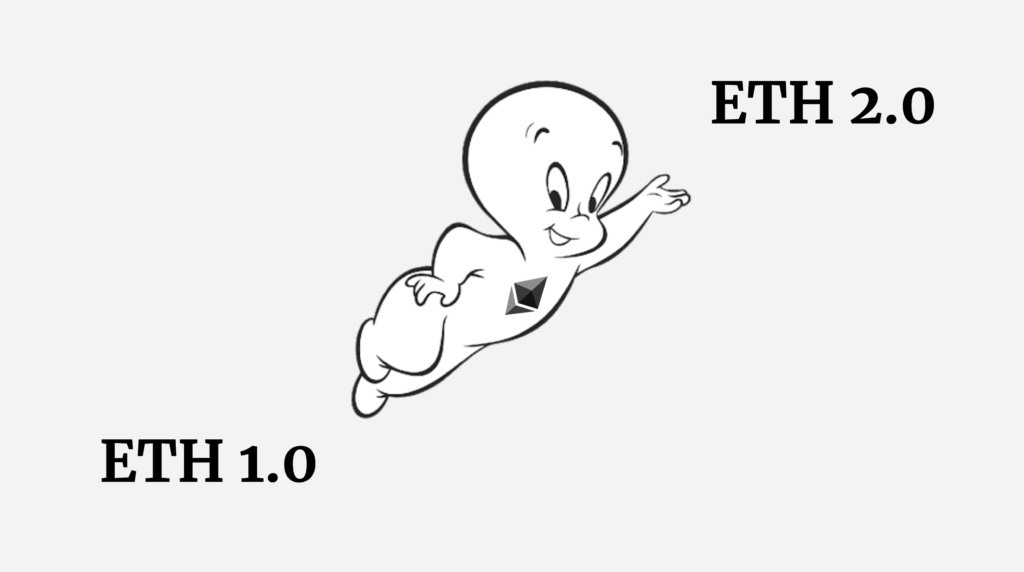
On July 2nd of 2017 I sent some friends in the blockchain industry an email with my concerns about Ethereum Casper (Ethereum 2.0).
As I still have the same concerns, and the majority seem to still be valid regarding the latest adaptations and modifications of the proof of stake based Ethereum 2.0 design, I transcribe the email below.
For historical purposes and originality I did not edit nor correct spelling, format, or grammar. For privacy, I excluded the recipients names and emails.
July 2017 Email About Ethereum Casper (Ethereum 2.0) to My Blockchain Industry Friends
Re: Lingering Ethereum Casper concerns
Hi gang,
Ethereum is migrating to Casper PoS system and they are starting to communicate how it works:
https://youtu.be/MyDocEQfBGA
https://youtu.be/uIVnhiZKZi8
From a layman’s perspective these are my concerns (sorry I don’t include more links and citations, but for the purpose of simplicity and time I omitted them):
Old background concerns, but relevant to the big picture:
1. Why pre-impose since the beginning of 2014 a forced migration in 2017 from a proven PoW to un unproven PoS if it was uncertain it was going be secure?
2. Why design “on the fly” and implement and launch a change to an unproven system, when the network is worth ~$30 billion?
More recent concerns:
3. In the latest security debates with Ethereum developers they have argued in favor of an “innovation first, security later” policy, this is probably too risky for such a large network because the whole purpose of blockchains is the other way around: security first and responsible innovation, to ensure decentralization, network uptime, resilience and social scalability.
4. When pressed about specific security policies, they have systematically deflected answering some objections using three devises:
– Indicating that the person issuing the objection does not know about the matter e.g. “the problem is you don’t know how forks work”
– Indicating that the person issuing the objection is free to leave and use other networks e.g. “you are free to use ETC or come back to ETH when sharding is ready”
– Appealing to extremes e.g. “if there is a global crisis where everybody will die, wouldn’t you fork to change the monetary policy”
Casper specific concerns:
5. It is largely a strict penalty system:
Will stakers be motivated to participate in a system that has many intricate rules where any failure, error or bug may impose high penalties?
6. Unforgeable costliness:
Not only is PoW a positive reward system that works, but it is clear there is a huge cost for hashes to be created and therefore the cost of creating BTC as rewards, this has value and has been demonstrated theoretically by ***** and in practice by Bitcoin and many other blockchains. Casper doesn’t have a financial model (or at least they are not focusing on showing it clearly) where it may be calculated or at least observed what is the cost of creating the rewards, therefore it is not clear to me what is the unforgeable costliness as it is in PoW.
7. Legal:
In such a complex set of rules, definitions of “bad behavior” and subsequent high penalties, doesn’t this open the door for legal interpretations of what is “good” or “bad” similar to traditional legal systems? If so, doesn’t this open Casper to be a litigious system where disgruntled stakers may start lawsuits against devs, foundation, etc. to recover past penalties? Isn’t a system with rewards, performance clauses and monetary penalties more suitable for a wet contract rather than “Code Is Law”? Isn’t there the possibility that they didn’t think all the good/bad behavior scenarios and this may create unforeseen conflicts?
8. Stockholm Syndrome:
In such a strict, complex set of rules, where stakers need to be part of the majority 2/3s of the system in order not to get penalized, wouldn’t many stakers start to validate epochs (groups of blocks) regardless of validity, out of fear of the penalty rather than because the TXs are true and verified?
If you guys have any corrections, comments or counterarguments that would be very welcome!
Best,
Donald
Code Is Law